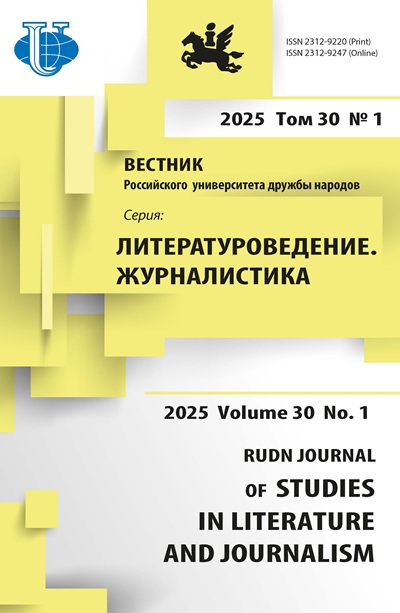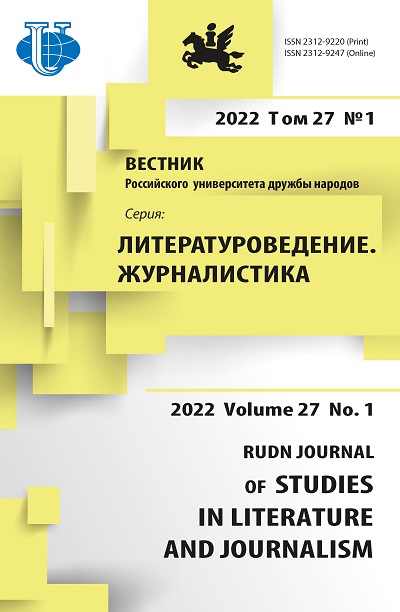Abstract
The article is devoted to the theoretical problem of the periodization of the Arab national literature. The issue of dividing Arabic literature into periods has long been in the focus of both Arab and Western, as well as Russian literary researchers. Undoubtedly, such issues, which have recently acquired relevance in connection with the growing interest in modern Arabic literature, require analysis from such points of view as the multiplicity and variability of existing periodizations, the reasons for the discrepancy between the periodizations of European and Arab national literatures and various approaches to the compilation of periodization by Arab and European specialists. The purpose of this work was designated as an attempt to demonstrate, using analysis and comparison, as well as the method of historicity, the redundancy or, conversely, the insufficiency of some periodizations and the terms used in them, to find different names for the same periods with the same artistic principles and time frames, as well as to establish the factors that had the strongest influence on the development of Arabic literature. In the course of the study, conclusions are drawn about the inexpediency of correlating the periodization of Arabic literature with general European, as well as about the key role of a number of factors in the history of Arabic literature. First, linguistic (minimal changes in the literary language since the codification of the Qur’an in the 7th century), that ensured the continuity and tradition of Arabic literature, which for centuries preserved and cultivated figurative systems and stylistic devices of preIslamic times. Secondly, the factor of national domination - a purely Arab or general Muslim character of the society. Under the conditions of the latter, there was a mutual enrichment of the literatures of the peoples included in the caliphate, which entailed fundamental changes in the genre system and themes of Arabic literature. The author thus holds the idea that the originality of Arab literature is due to the characters of Arab preIslamic culture in general and verbal culture in particular and the historical processes of the Middle Ages in the Middle East, first of all - the rapid formation of the Caliphate as an imperial state and the including of most Arab countries a part in the Ottoman Empire, where Arabic was not the state language, from the XIV century and before the territorial redistribution of the results of the World War I.

















